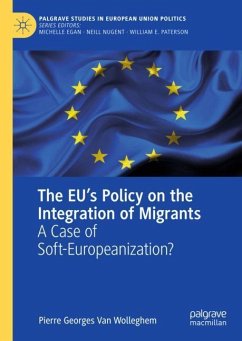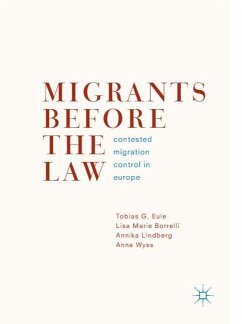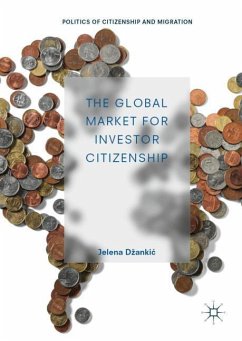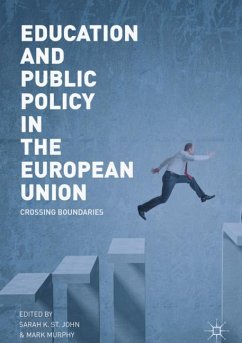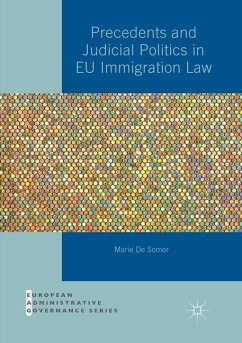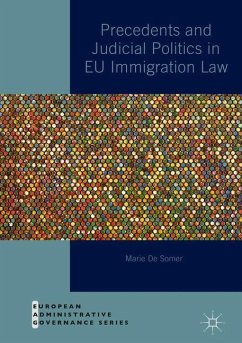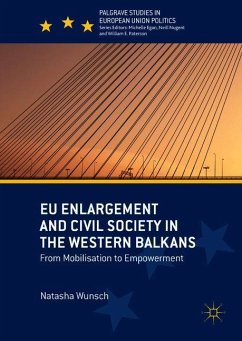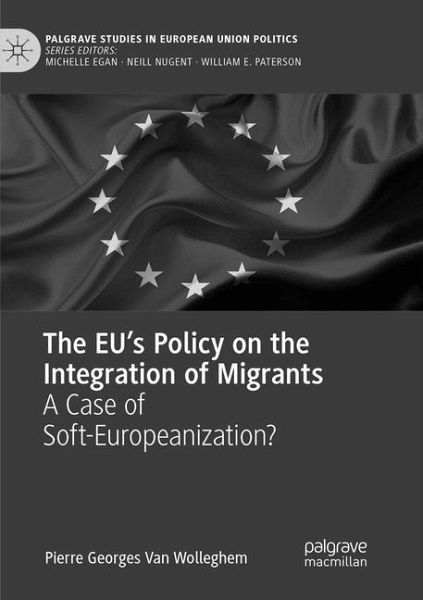
The EU's Policy on the Integration of Migrants
A Case of Soft-Europeanization?
Versandkostenfrei!
Versandfertig in 6-10 Tagen
61,99 €
inkl. MwSt.
Weitere Ausgaben:

PAYBACK Punkte
31 °P sammeln!
This book addresses a timely, yet largely overlooked, issue in political science: the integration of migrants in a multilevel polity. In a context characterised by the increasing salience of migration-related questions, and despite the gradual construction of a European Union immigration policy over the past two decades, no competence was ever created on integration matters. The emergence of a consistent ensemble of soft instruments in this policy realm in the 2000s unveiled an original pattern of EU policy formation. Can there be Europeanization without an EU competence? That is the question ...
This book addresses a timely, yet largely overlooked, issue in political science: the integration of migrants in a multilevel polity. In a context characterised by the increasing salience of migration-related questions, and despite the gradual construction of a European Union immigration policy over the past two decades, no competence was ever created on integration matters. The emergence of a consistent ensemble of soft instruments in this policy realm in the 2000s unveiled an original pattern of EU policy formation. Can there be Europeanization without an EU competence? That is the question this original piece of research tackles. It shows how the way in which the policy emerged at EU level affected policy outputs adopted thereafter throughout the policy cycle. Mixing qualitative and quantitative methods, it explains the development of the EU integration policy and examines its main policy device, the European Integration Fund, from negotiation to implementation.





